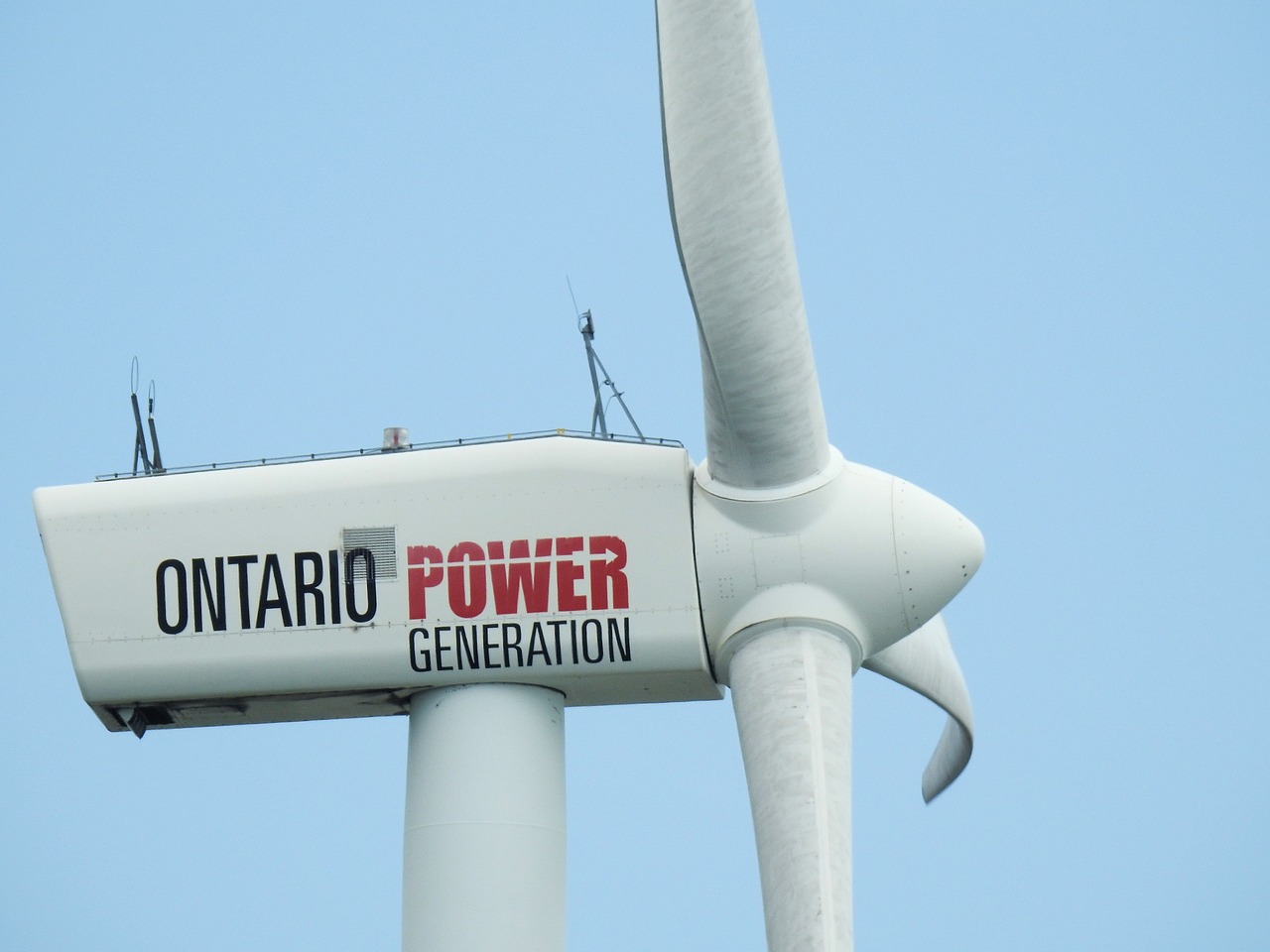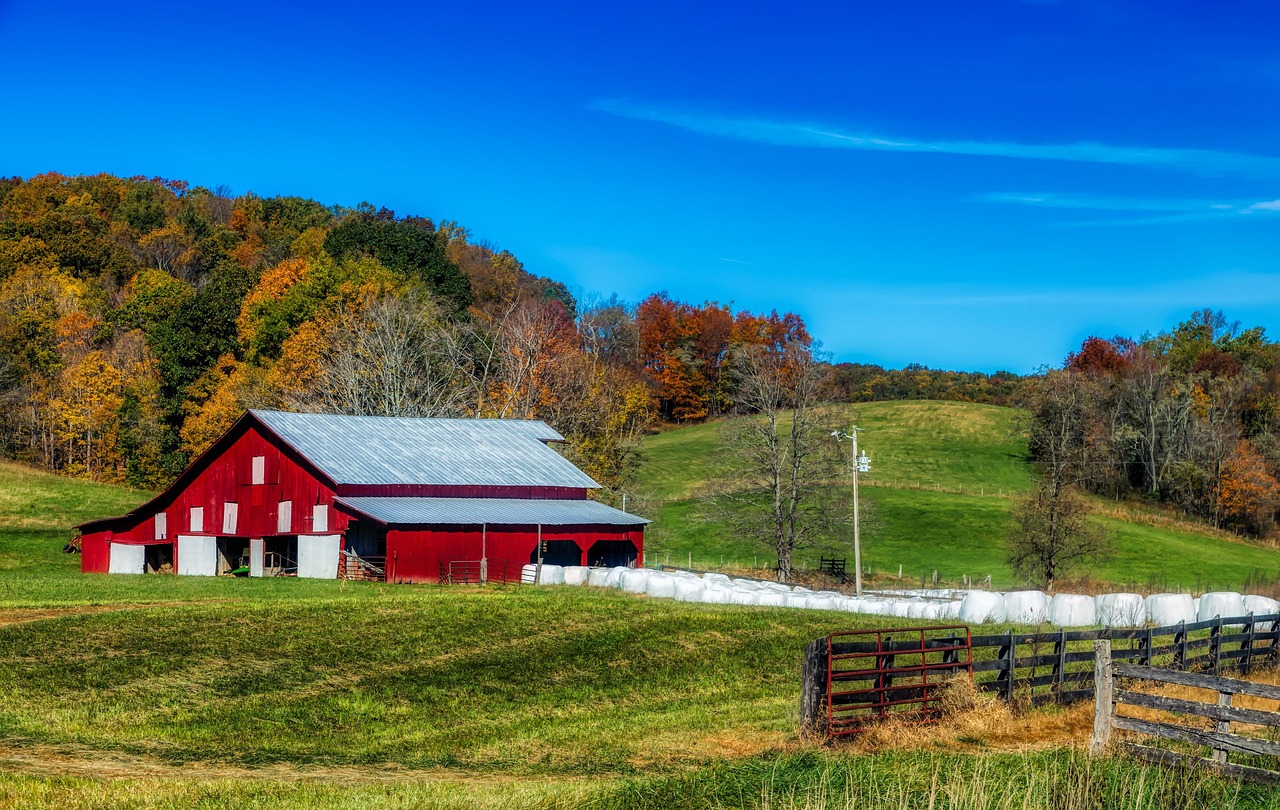West Bengal’s Fight Against Climate Change: Initiatives and Actions
This article explores the various initiatives and actions taken by West Bengal to combat climate change, highlighting government efforts, community participation, and innovative solutions aimed at creating a sustainable future.
Understanding Climate Change in West Bengal
West Bengal faces specific climate challenges such as rising sea levels, extreme weather events, and their significant impact on agriculture and livelihoods.
Government Policies and Frameworks
The West Bengal government has established comprehensive policies and frameworks to tackle climate change. This includes legislation, strategic plans, and partnerships with various stakeholders.
State Action Plan on Climate Change
The State Action Plan on Climate Change (SAPCC) outlines objectives for mitigation strategies and adaptation measures tailored to local needs.
- Mitigation Strategies: Focus on reducing greenhouse gas emissions through renewable energy and sustainable practices.
- Adaptation Measures: Enhance resilience among communities in agriculture, water management, and disaster preparedness.
Community Engagement and Participation
Local communities play a vital role in climate action through grassroots movements, awareness campaigns, and participatory decision-making processes.
Innovative Solutions and Technologies
West Bengal implements innovative technologies to combat climate change, including smart agriculture, waste management, and renewable energy initiatives.
- Renewable Energy Initiatives: Focus on solar and wind energy projects to reduce dependence on fossil fuels.
- Smart Agriculture Practices: Adoption of technology for better resource management and enhanced sustainability.
Challenges Faced in Climate Action
West Bengal encounters challenges such as funding constraints, political will, and public awareness in its fight against climate change.
Future Outlook and Recommendations
The future outlook for climate action in West Bengal emphasizes the need for improved strategies, enhanced stakeholder collaboration, and fostering innovation.
Conclusion: A Collective Responsibility
Addressing climate change in West Bengal requires a collective responsibility, with continued efforts, collaboration, and commitment from all sectors of society.
West Bengal’s Fight Against Climate Change: Initiatives and Actions
This article delves into the multifaceted initiatives and actions undertaken by West Bengal to effectively combat climate change. It emphasizes the concerted efforts by the government, active community participation, and the innovative solutions that are being implemented to pave the way for a sustainable future.
Understanding Climate Change in West Bengal
West Bengal faces significant climate challenges, including rising sea levels, increasing frequency of extreme weather events, and their detrimental impact on agriculture and local livelihoods. These challenges necessitate urgent and comprehensive responses.
Government Policies and Frameworks
The West Bengal government has established various policies and frameworks aimed at addressing climate change. These include legislations, strategic plans, and partnerships with stakeholders to create a robust response to climate-related issues.
State Action Plan on Climate Change
The State Action Plan on Climate Change (SAPCC) outlines specific objectives, including mitigation strategies and adaptation measures tailored to local needs, ensuring that the unique challenges of the region are met with effective solutions.
Mitigation Strategies
Among the key strategies outlined in the SAPCC are efforts to reduce greenhouse gas emissions through the promotion of renewable energy sources and sustainable practices across various sectors.
Adaptation Measures
Adaptation measures focus on enhancing community resilience, particularly in agriculture, water management, and disaster preparedness, ensuring that local populations can withstand the impacts of climate change.
Community Engagement and Participation
Local communities play a vital role in climate action, with grassroots movements and awareness campaigns fostering participatory decision-making processes that empower residents to take action.
Innovative Solutions and Technologies
West Bengal is embracing innovative technologies to combat climate change, including smart agriculture, effective waste management, and renewable energy initiatives aimed at reducing reliance on fossil fuels.
Renewable Energy Initiatives
The state has launched numerous renewable energy projects, particularly in solar and wind energy, which are crucial in transitioning towards a more sustainable energy landscape.
Smart Agriculture Practices
Smart agriculture practices are being adopted to enhance productivity and sustainability, leveraging technology for better resource management and reduced environmental impact.
Challenges Faced in Climate Action
Despite these efforts, West Bengal faces challenges such as funding constraints, political will, and the need for increased public awareness to effectively combat climate change.
Future Outlook and Recommendations
The future of climate action in West Bengal hinges on improved strategies, enhanced collaboration among stakeholders, and a commitment to fostering innovation in tackling climate challenges.
Conclusion: A Collective Responsibility
Addressing climate change in West Bengal is a collective responsibility that requires ongoing efforts, collaboration, and commitment from all sectors of society to ensure a sustainable future.
##
Understanding Climate Change in West Bengal
West Bengal’s Fight Against Climate Change: Initiatives and Actions
This article explores the various initiatives and actions taken by West Bengal to combat climate change, highlighting government efforts, community participation, and innovative solutions aimed at creating a sustainable future.
Understanding Climate Change in West Bengal
West Bengal faces significant climate challenges that threaten its environment, economy, and communities. Key issues include:
- Rising Sea Levels: Coastal areas are increasingly vulnerable to flooding.
- Extreme Weather Events: The state experiences more frequent cyclones and heavy rainfall.
- Agricultural Impact: Changes in climate patterns affect crop yields and food security.
Government Policies and Frameworks
The West Bengal government has established various policies to address climate change, including:
- State Action Plan on Climate Change (SAPCC): A comprehensive framework outlining mitigation and adaptation strategies.
- Legislation: Laws aimed at promoting renewable energy and sustainable practices.
- Partnerships: Collaborations with NGOs and international organizations for effective implementation.
Community Engagement and Participation
Local communities play a crucial role in climate action through:
- Grassroots Movements: Initiatives that empower citizens to take action.
- Awareness Campaigns: Programs designed to educate the public on climate issues.
- Participatory Decision-Making: Involving communities in planning and executing climate strategies.
Innovative Solutions and Technologies
West Bengal is adopting innovative technologies to combat climate change, such as:
- Renewable Energy Initiatives: Projects focusing on solar and wind energy to reduce fossil fuel dependence.
- Smart Agriculture Practices: Utilizing technology for better resource management and productivity.
Challenges Faced in Climate Action
Despite progress, West Bengal faces several challenges, including:
- Funding Constraints: Limited financial resources for climate initiatives.
- Political Will: The need for stronger commitment from policymakers.
- Public Awareness: Increasing understanding of climate issues among the general populace.
Future Outlook and Recommendations
Looking ahead, it is crucial for West Bengal to enhance strategies by:
- Improving Collaboration: Strengthening partnerships among stakeholders.
- Fostering Innovation: Encouraging research and development in sustainable technologies.
Conclusion: A Collective Responsibility
Addressing climate change in West Bengal requires a collective effort from all sectors of society. Continued commitment and collaboration are essential for a sustainable future.
##
Government Policies and Frameworks
West Bengal’s Fight Against Climate Change: Initiatives and Actions
This article explores the various initiatives and actions taken by West Bengal to combat climate change, highlighting government efforts, community participation, and innovative solutions aimed at creating a sustainable future.
Understanding Climate Change in West Bengal
West Bengal faces significant climate challenges, including rising sea levels, extreme weather events, and their adverse impacts on agriculture and livelihoods.
Government Policies and Frameworks
The West Bengal government has established various policies and frameworks to address climate change. These include:
- Legislation: Enacting laws that support environmental sustainability.
- Strategic Plans: Developing comprehensive plans to tackle climate issues.
- Partnerships: Collaborating with stakeholders to enhance climate action.
State Action Plan on Climate Change
The State Action Plan on Climate Change (SAPCC) outlines objectives focused on mitigation strategies and adaptation measures tailored to local needs.
Mitigation Strategies
Specific mitigation strategies include reducing greenhouse gas emissions through:
- Renewable Energy: Investing in solar and wind energy projects.
- Sustainable Practices: Promoting eco-friendly agricultural techniques.
Adaptation Measures
Adaptation measures are crucial for enhancing community resilience, particularly in:
- Agriculture: Implementing climate-resilient crops.
- Water Management: Improving irrigation systems.
- Disaster Preparedness: Strengthening response mechanisms.
Community Engagement and Participation
Local communities play a vital role in climate action through grassroots movements, awareness campaigns, and participatory decision-making processes.
Innovative Solutions and Technologies
West Bengal is implementing innovative technologies to combat climate change, including:
- Smart Agriculture: Utilizing technology for efficient resource management.
- Waste Management: Developing sustainable waste disposal methods.
Challenges Faced in Climate Action
Despite efforts, West Bengal faces challenges such as funding constraints, political will, and public awareness.
Future Outlook and Recommendations
The future of climate action in West Bengal relies on improving strategies, enhancing stakeholder collaboration, and fostering innovation.
Conclusion: A Collective Responsibility
Addressing climate change in West Bengal is a collective responsibility that requires continued efforts, collaboration, and commitment from all sectors of society.
##
State Action Plan on Climate Change
West Bengal’s Fight Against Climate Change: Initiatives and Actions
This article explores the various initiatives and actions taken by West Bengal to combat climate change, highlighting government efforts, community participation, and innovative solutions aimed at creating a sustainable future.
Understanding Climate Change in West Bengal
West Bengal faces significant climate challenges, including rising sea levels, extreme weather events, and their detrimental impacts on agriculture and livelihoods. These issues necessitate urgent action and comprehensive strategies.
Government Policies and Frameworks
The West Bengal government has established various policies and frameworks to tackle climate change effectively. This includes legislation, strategic plans, and partnerships with stakeholders.
State Action Plan on Climate Change
The State Action Plan on Climate Change (SAPCC) outlines objectives for both mitigation and adaptation, focusing on local needs. It aims to reduce greenhouse gas emissions and enhance community resilience.
Mitigation Strategies
Specific mitigation strategies in the SAPCC include promoting renewable energy sources and implementing sustainable practices across various sectors.
Adaptation Measures
Adaptation measures are vital for enhancing resilience, particularly in agriculture, water management, and disaster preparedness.
Community Engagement and Participation
Local communities play a crucial role in climate action through grassroots movements, awareness campaigns, and participatory decision-making processes.
Innovative Solutions and Technologies
West Bengal is implementing innovative technologies to combat climate change, such as smart agriculture, waste management, and renewable energy initiatives.
Renewable Energy Initiatives
Renewable energy initiatives focus on solar and wind energy projects, reducing dependence on fossil fuels and promoting sustainability.
Smart Agriculture Practices
Smart agriculture practices enhance productivity and sustainability, utilizing technology for better resource management.
Challenges Faced in Climate Action
Despite progress, West Bengal faces challenges such as funding constraints, political will, and public awareness issues that hinder effective climate action.
Future Outlook and Recommendations
The future outlook for climate action in West Bengal requires improved strategies, enhanced stakeholder collaboration, and fostering innovation.
Conclusion: A Collective Responsibility
Addressing climate change in West Bengal is a collective responsibility. Continued efforts, collaboration, and commitment from all sectors of society are essential for a sustainable future.
##
Mitigation Strategies
Mitigation Strategies
Mitigation strategies are essential in the fight against climate change, particularly in regions like West Bengal, where the effects are increasingly pronounced. These strategies aim to reduce greenhouse gas emissions and promote sustainable practices across various sectors. Below are some key mitigation strategies being implemented:
- Renewable Energy Adoption: West Bengal is investing heavily in renewable energy sources such as solar and wind power. The government has set ambitious targets to increase the share of renewable energy in the state’s energy mix, aiming to reduce reliance on fossil fuels.
- Energy Efficiency Programs: Initiatives to enhance energy efficiency in industrial and residential sectors are being rolled out. This includes promoting energy-saving appliances and retrofitting existing buildings to minimize energy consumption.
- Sustainable Agriculture Practices: The state is encouraging farmers to adopt sustainable practices such as organic farming, crop rotation, and agroforestry. These practices not only reduce emissions but also enhance soil health and biodiversity.
- Waste Management Solutions: Effective waste management strategies are being implemented, focusing on reducing landfill waste through recycling and composting. This not only mitigates emissions from waste but also promotes a circular economy.
- Public Transport Enhancement: Investments in public transportation systems aim to reduce emissions from vehicles. By promoting the use of buses and trains over personal vehicles, the state aims to lower traffic congestion and air pollution.
These mitigation strategies are part of a comprehensive approach outlined in the State Action Plan on Climate Change (SAPCC). By focusing on sustainability and innovation, West Bengal is taking significant steps towards a greener future.
In conclusion, the success of these mitigation strategies relies on the active participation of both government and local communities. Together, they can create a resilient framework that addresses the challenges posed by climate change in West Bengal.
##
Adaptation Measures
Adaptation Measures are critical in the fight against climate change, especially in regions like West Bengal, where communities are vulnerable to environmental shifts. These measures aim to enhance resilience among local populations, particularly in sectors such as agriculture, water management, and disaster preparedness.
As climate change intensifies, West Bengal faces unique challenges, including rising sea levels and extreme weather events. To address these issues, the state has implemented several adaptation strategies:
- Climate-Resilient Agriculture: Farmers are encouraged to adopt climate-resilient crop varieties that can withstand extreme weather conditions. Training programs are conducted to educate farmers on sustainable practices that improve soil health and increase yield.
- Water Management: Efficient water management systems are being developed, including rainwater harvesting and improved irrigation techniques. These initiatives help conserve water and ensure its availability during droughts.
- Disaster Preparedness: Communities are being trained in disaster risk reduction strategies. This includes early warning systems and emergency response plans to minimize the impact of natural disasters.
- Community Engagement: Local communities are actively involved in decision-making processes regarding climate adaptation. This participatory approach ensures that the measures taken are relevant and effective.
In conclusion, adaptation measures in West Bengal are not just about responding to climate change; they are about building a sustainable future for communities. By focusing on resilience, the state can better prepare for the inevitable impacts of climate change, ensuring the safety and livelihoods of its people.
##
Community Engagement and Participation
Community Engagement and Participation
The fight against climate change in West Bengal is not solely a government endeavor; it requires active involvement from local communities. This section delves into the various ways communities engage in climate action, emphasizing grassroots movements, awareness campaigns, and participatory decision-making processes.
Grassroots Movements
- Community-led initiatives have emerged as powerful catalysts for change, mobilizing citizens to take action against climate challenges.
- Local organizations work tirelessly to educate residents about the impacts of climate change on their lives and livelihoods.
Awareness Campaigns
- Awareness campaigns are crucial in informing the public about the importance of sustainability and environmental conservation.
- Through workshops, seminars, and social media, communities share knowledge on reducing carbon footprints and adopting eco-friendly practices.
Participatory Decision-Making
- Engaging communities in the decision-making process ensures that local voices are heard and considered in climate action plans.
- This approach fosters a sense of ownership and responsibility among community members, motivating them to contribute actively.
Successful Examples
- In many villages, local farmers have come together to implement sustainable agricultural practices, enhancing food security while protecting the environment.
- Community groups have initiated tree planting drives, significantly contributing to afforestation efforts in the region.
In conclusion, community engagement and participation are vital for the success of climate action initiatives in West Bengal. By fostering collaboration between government entities and local populations, the state can enhance its resilience against climate change and build a sustainable future.
##
Innovative Solutions and Technologies
Innovative Solutions and Technologies
This section provides an overview of the innovative technologies and solutions being implemented in West Bengal to combat climate change. These initiatives are crucial for creating a sustainable future and include various approaches such as smart agriculture, waste management, and renewable energy projects.
| Solution Type | Description | Impact |
|---|---|---|
| Renewable Energy Initiatives | Projects focusing on solar and wind energy to reduce dependence on fossil fuels. | Lower greenhouse gas emissions and promote sustainable energy sources. |
| Smart Agriculture Practices | Utilization of technology for better resource management in farming. | Increased productivity and sustainability in agricultural practices. |
| Waste Management Solutions | Innovative approaches to manage waste effectively and promote recycling. | Reduced environmental pollution and enhanced community health. |
Renewable Energy Initiatives
West Bengal has been actively pursuing renewable energy projects, particularly in solar and wind energy sectors. These initiatives aim to harness natural resources to generate clean energy, significantly reducing the state’s carbon footprint.
Smart Agriculture Practices
In the realm of agriculture, smart practices are being adopted to enhance productivity while ensuring sustainability. This includes the use of precision farming technologies, which allow farmers to optimize their inputs and improve crop yields.
Conclusion
Innovative solutions and technologies are vital in West Bengal’s fight against climate change. By embracing renewable energy, smart agriculture, and effective waste management, the state is taking significant steps towards a sustainable future.
##
Renewable Energy Initiatives
Renewable Energy Initiatives
West Bengal is actively embracing renewable energy initiatives to combat climate change and reduce its dependence on fossil fuels. These initiatives are crucial for creating a sustainable energy future and addressing the pressing environmental challenges faced by the state.
| Type of Renewable Energy | Key Projects | Benefits |
|---|---|---|
| Solar Energy | Solar Parks in Purulia and Bankura | Reduces carbon emissions, creates jobs, and provides clean energy. |
| Wind Energy | Wind Farms in the Sundarbans | Utilizes natural resources, diversifies energy sources, and promotes sustainability. |
| Biomass Energy | Biogas Plants in Rural Areas | Enhances waste management, provides energy for cooking, and supports local agriculture. |
One of the significant projects is the establishment of solar parks in Purulia and Bankura, which harness the abundant sunlight in these regions. These parks not only contribute to the state’s energy needs but also create job opportunities for local communities.
Additionally, the development of wind farms in the Sundarbans area is another step towards utilizing renewable resources. These initiatives are designed to complement the state’s energy mix and reduce its carbon footprint.
The government has also initiated biomass energy projects, particularly in rural areas, focusing on biogas plants that convert agricultural waste into energy. This approach not only addresses energy needs but also promotes sustainable agricultural practices.
Overall, West Bengal’s renewable energy initiatives are paving the way for a greener future, demonstrating the state’s commitment to tackling climate change while fostering economic growth and sustainability.
##
Smart Agriculture Practices
Smart Agriculture Practices are increasingly becoming essential in the fight against climate change, especially in regions like West Bengal. These practices leverage technology and sustainable methods to enhance productivity while minimizing environmental impact.
With the growing challenges posed by climate change, farmers in West Bengal are adopting innovative techniques to cope with changing weather patterns and resource scarcity. Here are some key aspects of smart agriculture practices:
- Precision Farming: Utilizing GPS and IoT devices, farmers can monitor crop health and soil conditions in real-time, allowing for informed decision-making regarding irrigation and fertilization.
- Water Management: Advanced irrigation systems, such as drip and sprinkler irrigation, help conserve water while ensuring crops receive the necessary hydration.
- Crop Rotation and Diversification: By rotating different crops, farmers can improve soil health and reduce pest infestations, leading to more sustainable farming practices.
- Use of Drones: Drones are employed for aerial surveillance of fields, enabling farmers to identify issues such as pest outbreaks or nutrient deficiencies quickly.
- Organic Farming: Emphasizing the use of organic fertilizers and pesticides, this practice not only reduces chemical runoff but also enhances biodiversity.
These smart agriculture practices not only contribute to higher yields but also promote environmental sustainability. As farmers in West Bengal continue to embrace these technologies, they are better equipped to face the challenges posed by climate change.
In conclusion, the integration of smart agriculture practices is crucial for ensuring food security and environmental health in West Bengal. Continued support and investment in these technologies will empower local farmers and contribute to a more sustainable agricultural future.
##
Challenges Faced in Climate Action
Challenges Faced in Climate Action
West Bengal is at the forefront of combating climate change, yet it faces numerous challenges that hinder its efforts. Understanding these obstacles is crucial for developing effective strategies and ensuring sustainable progress. Below are some of the key challenges:
- Funding Constraints: Limited financial resources significantly impact the implementation of climate initiatives. The state often relies on external funding and grants, which can be unpredictable and insufficient.
- Political Will: Consistent political commitment is essential for long-term climate action. Fluctuations in political priorities can lead to disruptions in policy continuity and the execution of climate programs.
- Public Awareness: A lack of awareness among the general public about climate change and its impacts hampers community engagement. Education and outreach programs are needed to foster a culture of sustainability.
- Infrastructure Challenges: Inadequate infrastructure, particularly in rural areas, poses a significant barrier to implementing modern climate solutions. Investments in infrastructure are necessary to support sustainable practices.
- Natural Disasters: The increasing frequency of extreme weather events, such as floods and cyclones, complicates recovery efforts and strains resources. This unpredictability makes it difficult to plan and execute long-term strategies.
Addressing these challenges requires a multifaceted approach involving government action, community participation, and innovative solutions. By recognizing and tackling these issues, West Bengal can enhance its resilience against climate change and work towards a sustainable future.
##
Future Outlook and Recommendations
Future Outlook and Recommendations
As West Bengal continues its fight against climate change, it is essential to look ahead and formulate effective strategies that align with the region’s unique challenges and opportunities. The following recommendations aim to enhance the state’s climate action efforts and ensure a sustainable future for its residents.
- Strengthening Policy Frameworks: The government should enhance existing policies and develop new frameworks that prioritize climate resilience. This includes integrating climate considerations into all sectors, such as agriculture, urban planning, and infrastructure development.
- Increasing Funding and Investment: Securing adequate funding is crucial for implementing climate initiatives. The state should explore partnerships with international organizations, private sectors, and local communities to mobilize financial resources for climate projects.
- Enhancing Public Awareness: Raising awareness about climate change and its impacts is vital. The government can launch educational campaigns to inform citizens about sustainable practices and the importance of individual contributions to climate action.
- Promoting Community Engagement: Local communities play a pivotal role in climate action. Encouraging grassroots movements and participatory decision-making will empower citizens and foster a sense of ownership over local climate initiatives.
- Investing in Research and Innovation: The state should support research initiatives focused on innovative technologies and solutions for climate change mitigation and adaptation. Collaborating with academic institutions and research organizations can lead to breakthroughs in sustainable practices.
- Fostering Collaboration Among Stakeholders: Building strong partnerships between government agencies, NGOs, businesses, and communities will enhance the effectiveness of climate action strategies. Collaborative efforts can lead to shared resources and knowledge exchange.
In conclusion, the future outlook for climate action in West Bengal hinges on a multi-faceted approach that includes policy enhancement, community involvement, and innovation. By implementing these recommendations, West Bengal can lead by example in the fight against climate change, ensuring a resilient and sustainable future for all.
##
Conclusion: A Collective Responsibility
West Bengal’s Fight Against Climate Change: Initiatives and Actions
This article explores the various initiatives and actions taken by West Bengal to combat climate change, highlighting government efforts, community participation, and innovative solutions aimed at creating a sustainable future.
Understanding Climate Change in West Bengal
West Bengal faces significant climate challenges, including rising sea levels, extreme weather events, and their detrimental effects on agriculture and livelihoods.
Government Policies and Frameworks
The West Bengal government has established various policies and frameworks to address climate change, including legislation, strategic plans, and partnerships with stakeholders.
State Action Plan on Climate Change
The State Action Plan on Climate Change (SAPCC) outlines objectives focused on mitigation strategies and adaptation measures tailored to local needs.
Mitigation Strategies
Specific mitigation strategies include reducing greenhouse gas emissions through renewable energy and sustainable practices.
Adaptation Measures
Adaptation measures enhance resilience among communities, particularly in agriculture, water management, and disaster preparedness.
Community Engagement and Participation
Local communities play a crucial role in climate action, engaging in grassroots movements, awareness campaigns, and participatory decision-making processes.
Innovative Solutions and Technologies
Innovative technologies are being implemented in West Bengal to combat climate change, including smart agriculture, waste management, and renewable energy initiatives.
Renewable Energy Initiatives
West Bengal focuses on solar and wind energy projects to reduce dependence on fossil fuels.
Smart Agriculture Practices
Smart agriculture practices enhance productivity and sustainability through technology for better resource management.
Challenges Faced in Climate Action
Challenges include funding constraints, political will, and public awareness in the fight against climate change.
Future Outlook and Recommendations
Future outlooks for climate action in West Bengal include recommendations for improving strategies, enhancing stakeholder collaboration, and fostering innovation.
Conclusion: A Collective Responsibility
Addressing climate change in West Bengal is a collective responsibility. Continued efforts, collaboration, and commitment from all sectors of society are essential for a sustainable future.
Frequently Asked Questions
- What are the main climate challenges faced by West Bengal?
West Bengal grapples with several climate challenges, including rising sea levels, extreme weather events, and their detrimental effects on agriculture and livelihoods. These issues pose significant threats to the state’s ecosystem and economy.
- How is the West Bengal government addressing climate change?
The government has established various policies and frameworks, such as the State Action Plan on Climate Change (SAPCC), which focuses on mitigation strategies and adaptation measures. These initiatives aim to reduce greenhouse gas emissions and enhance community resilience.
- What role do local communities play in climate action?
Local communities are vital in climate action through grassroots movements, awareness campaigns, and participatory decision-making processes. Their involvement ensures that climate initiatives are relevant and effectively address local needs.
- What innovative solutions are being implemented in West Bengal?
Innovative technologies such as smart agriculture practices, renewable energy projects, and effective waste management systems are being adopted. These solutions aim to enhance productivity while reducing environmental impact.
- What challenges does West Bengal face in climate action?
Challenges include funding constraints, political will, and public awareness. Overcoming these barriers is crucial for the successful implementation of climate initiatives and achieving sustainable development.


























































